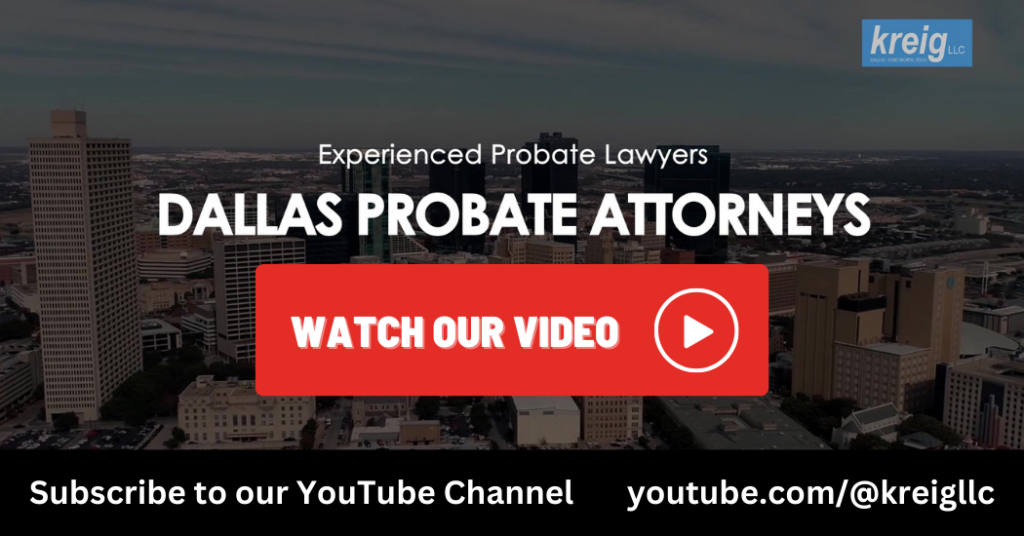In Dallas, Texas, Jimmy’s life took a complicated turn when he lost his wife and was faced with navigating the nuances of Texas estate law. His stepson Bob, absent for nearly a decade, unexpectedly inherited a 50% stake in the home Jimmy thought was fully his.
Texas Estates Code provides guidelines for what happens when a person dies without a will. In Jimmy’s case, as his wife died intestate, the law determined the distribution of her assets, including the couple’s home. Per Texas Estates Code Sec. 102.003, the homestead of a decedent who dies leaving a spouse descends and vests in the same manner as other real property and is governed by the laws of descent and distribution.
Because Jimmy’s wife had a child from a previous marriage, Bob, her interest in the property went to him, making Jimmy and Bob ‘tenants-in-common.’ Essentially, each now has a 50% ownership stake in the property without any automatic right of survivorship.
The Issue of Homestead and Financial Obligations
Per Texas Estates Code Sec. 102.004, the homestead is not generally liable for the payment of any of the estate’s debts, except for specific types like purchase money, taxes, and certain types of liens and improvements.
Jimmy finds himself solely responsible for the upkeep, taxes, and potentially, the mortgage interest, even if Bob is not contributing. While Bob is not directly responsible for the mortgage—since he never signed mortgage documents—his ownership still binds him to certain financial responsibilities.
Homestead Rights: A Protective Shield for the Surviving Spouse
Here’s where it gets interesting: according to Texas Estates Code Sec. 102.005, as long as Jimmy elects to use or occupy the property as a homestead, it cannot be partitioned among the decedent’s heirs during his lifetime. The surviving spouse cannot be forced to sell.
This provision safeguards Jimmy from any immediate financial or legal actions from Bob that could force a sale or division of the home. It allows Jimmy to continue living in the house without the looming threat of eviction or forced sale, at least for as long as he wishes to maintain it as his homestead.
On the flip side, per Texas Estates Code Sec. 102.006, Bob’s 50% ownership remains in a sort of legal stasis. He has ownership rights but is limited in how he can exercise them as long as Jimmy elects to keep the property as his homestead. Bob will only gain full control over his half if Jimmy dies, sells his share, or stops using the property as his homestead.
Needless to say, this fact pattern often leads to litigation. It is one of the most common types of probate disputes that we encounter.
Agreeing to the Ownersh of the Property
In situations like Jimmy’s and Bob’s, where the legal framework creates a complex ownership situation, a resolution may still be reached through mutual agreement. Both parties can negotiate an arrangement that diverges from the default intestate succession laws.
For instance, if the estate has assets that are equivalent in value to Bob’s 50% share of the house, an agreement could be struck where Jimmy retains full ownership of the home, while Bob inherits these alternative assets. Alternatively, Jimmy could secure a loan against his share of the property and use the funds to buy out Bob’s interest. Any such agreement should be set out in a legally binding document, often referred to as a ‘Family Settlement Agreement,’ which would then usually require court approval for execution.
By taking this route, both Jimmy and Bob may be able to arrive at an agreeable and practical resolution that respects their individual wishes and needs, all while conforming to the legal requirements set by the Texas Estates Code.
Takeaway
Navigating estate law is rarely straightforward, and complexities multiply when family dynamics are thrown into the mix. In Jimmy’s situation, the Texas Estates Code both safeguards his ability to reside in his home and complicates the ownership structure by involving his stepson, Bob. While the law provides Jimmy with a safety net through homestead rights, it also puts Bob’s ownership interests in a kind of legal limbo—activated fully only when certain conditions are met.
These legal nuances underscore the critical need for expert legal guidance, especially when emotions and relationships are already strained by the loss of a loved one. Because a home isn’t just four walls and a roof—it’s a repository of memories, shared experiences, and often, complex family relationships. In scenarios like Jimmy’s, understanding the legal landscape is not just advisable—it’s essential for safeguarding both tangible assets and the emotional well-being of those involved.
Our Dallas Probate Attorneys provide a full range of probate services to our clients, including helping with estate planning. Probate is what we do. Affordable rates, fixed fees, and payment plans are available. We provide step-by-step instructions, guidance, checklists, and more for completing the probate process.We have years of combined experience we can use to support and guide you with probate and estate matters. Call us today for a FREE attorney consultation.
Disclaimer: The content of this website is for informational purposes only and should not be construed as legal advice. The information presented may not apply to your situation and should not be acted upon without consulting a qualified probate attorney. We encourage you to seek the advice of a competent attorney with any legal questions you may have.
Don't miss out, get a copy today!












